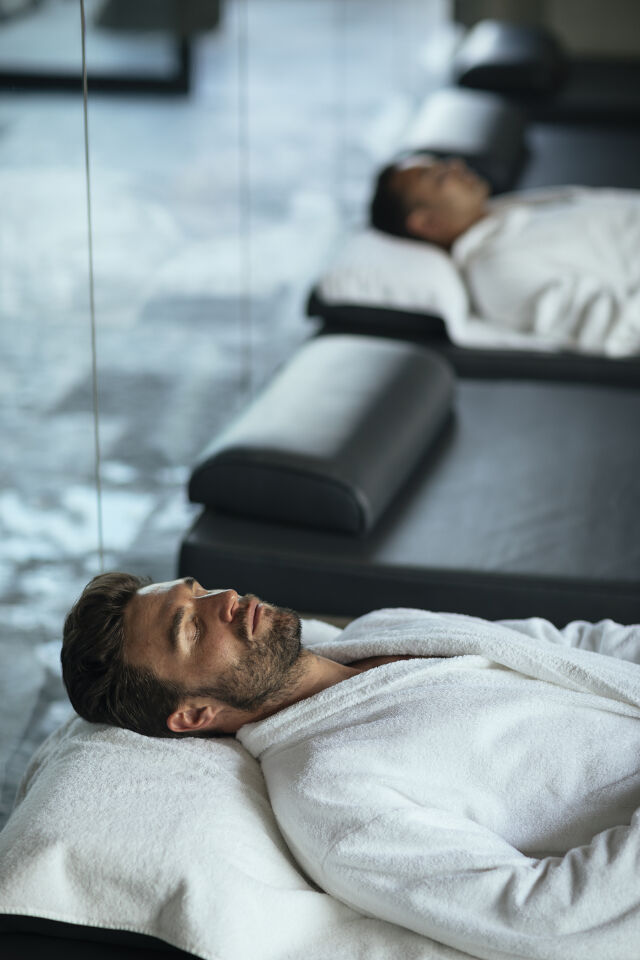
The power of sleep: how it impacts your stress levels
In a world that never stops, sleep is often seen as a luxury rather than a necessity. Yet, sleep is one of the most essential factors for our well-being, especially when it comes to managing stress. Studies show that sleep is crucial not only for physical recovery but also for regulating emotions and reducing stress. In this blog, we explore the science behind sleep, the consequences of sleep deprivation, and how small changes to your sleep routine can significantly lower your stress levels.

The science behind sleep and stress
Sleep is a complex process consisting of several stages, such as REM sleep (Rapid Eye Movement) and deep sleep. During these stages, the body undergoes physical recovery, and the brain processes emotional events from the day.
Research published in Nature Reviews Neuroscience shows that quality sleep reduces the production of stress hormones like cortisol. Sleep deprivation, on the other hand, increases cortisol levels, leading to chronic stress. This creates a vicious cycle: stress causes insomnia, and insomnia increases stress.
Moreover, sleep impacts the prefrontal cortex, the part of the brain responsible for decision-making and emotional regulation. Lack of sleep can lead to impulsive behavior, heightened irritability, and reduced resilience to stressful situations. In short, the better you sleep, the better equipped you are to handle life’s challenges.

Difference between sleep deprivation and insomnia
Many people use the terms insomnia and sleep deprivation interchangeably, but they do not mean the same thing. Sleep deprivation occurs when you consciously sleep less than you need, for example, due to a busy lifestyle or long work hours. Insomnia, on the other hand, is a sleep disorder in which, despite the desire and ability to sleep, you have difficulty falling asleep or sleeping through. This can lead to frustration, fatigue and increased stress. In many cases, insomnia is short-lived and the sleep pattern recovers on its own. In some people, however, it persists and becomes a chronic problem.
Both problems negatively affect your health and well-being, but the approach differs. Sleep deprivation can often be solved by prioritizing adequate rest and relaxation. Insomnia, especially when prolonged, often requires professional help. Short-term insomnia may improve on its own, but chronic insomnia requires a targeted approach. In doing this, you can learn a targeted approach to generate productive sleep or through specialized treatments tailored to your situation.
The effects of sleep deprivation on your health
Sleep deprivation has far-reaching consequences that go beyond feeling tired. Here are some key effects:
- Mental Health: Chronic sleep deprivation is linked to anxiety disorders, depression, and burnout. Without sufficient sleep, the brain cannot recover properly, increasing the risk of mental health issues.
- Physical Health: Sleep deprivation can lead to a higher risk of cardiovascular diseases, type 2 diabetes, and a weakened immune system. The body needs deep sleep to recover and prepare for the next day.
- Productivity and Focus: Lack of sleep affects cognitive functions such as concentration, memory, and productivity. This can not only lead to stress but also to mistakes that further exacerbate stress.
- Weight Gain: Research shows that sleep deprivation disrupts hormonal balance, increasing appetite and promoting weight gain—a factor that can in itself cause stress.

Tips for a better sleep routine
Thankfully, small lifestyle adjustments can improve your sleep quality. Here are some practical tips:
Create a Consistent Sleep Schedule
Try to go to bed and wake up at the same time every day, even on weekends. This helps regulate your internal clock.
Limit Screen Time Before Bed
The blue light from phones, tablets, and laptops can interfere with melatonin production, the hormone that makes you sleepy. Put your devices away at least an hour before bedtime.
Optimize Your Sleep Environment
Ensure your room is dark, quiet, and cool. Use blackout curtains and invest in a good mattress and pillow.
Relax Before Bed
Practice relaxation techniques like meditation, breathing exercises, or take a warm bath. These activities help calm your body and mind.
Avoid Caffeine and Alcohol
Both can disrupt sleep quality, especially if consumed in the evening. Opt for a cup of herbal tea instead.

A complete reset: visit Waer Waters
Want to really boost your sleep quality and stress levels? Then consider a wellness day or night at Waer Waters. With a stay at our luxurious hotel, you can extend your wellness experience and fully enjoy peace and comfort. A day in our relaxing wellness helps your body and mind fully unwind. Discover how our facilities contribute not only to a better night's sleep, but also to a healthier lifestyle.
Complete your experience with a massage or yoga session to lower your stress hormones and improve your sleep quality. End the day with a delicious dinner at one of our restaurants and then retire to one of our stylish and comfortable hotel rooms. Wake up the next morning refreshed and reborn, ready to start your day full of new energy. At Waer Waters you will find all the ingredients for a complete reset, including a perfect night's sleep.
Book your stay now and discover for yourself the power of total relaxation.
Conclusion: sleep as the foundation for a healthy life
Sleep is not a luxury but a fundamental pillar of a healthy and stress-free life. By prioritizing good sleep and consciously working on a healthy sleep routine, you can reduce your stress levels and improve your overall well-being. Plan a wellness day at Waer Waters today to give yourself the relaxation you deserve. Your body and mind will thank you!


